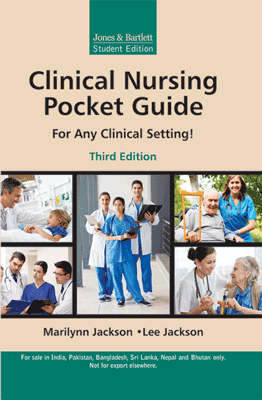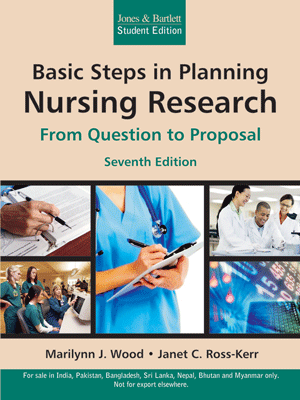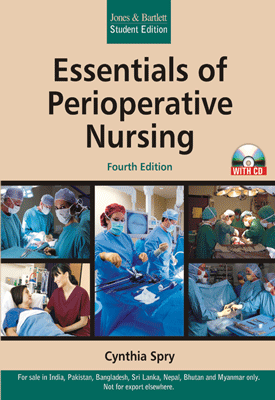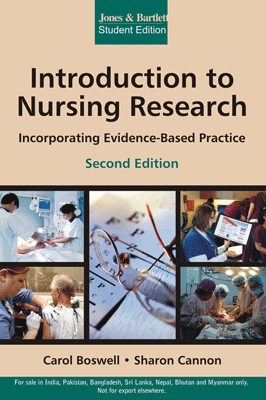Clinical Delegation Skills, 4/e
Clinical Delegation Skills, 4/e
A Handbook for Professional Practice
₹265.50 ₹295.00 Save: ₹29.50 (10%)
Go to cartISBN: 9789380108810
Bind: Paperback
Year: 2011
Pages: 446
Size: 153 x 229 mm
Publisher: Jones & Bartlett Learning
Published in India by: Jones & Bartlett India Private Limited
Exclusive Distributors: Viva Books
Sales Territory: India, Nepal, Pakistan, Bangladesh, Sri Lanka, Bhutan
Clinical Delegation Skills helps students and practicing nurses better understand delegation skills and apply them effectively when working with others, while still meeting patient needs. Practical, easy to read, and full of checkpoints, and exercises, this renowned text teaches readers about the world of professional healthcare roles and accountability, as well as how to communicate effectively, provide feedback, evaluate outcomes, handle conflict, and address leadership strengths and weaknesses. The book focuses on higher-order critical thinking skills, emotional intelligence, and clinical judgment.
The Fourth Edition has been completely revised and updated and reflects all new delegation laws and policies, current evidence-based research that supports the efficacy of teamwork and delegation in clinical settings, new information on the Magnet Recognition Program for hospitals, and an entirely new resource section.
Key Features Include:
• Chapter Opener and Highlighted Quotations
• Chapter Skills
• Checkpoint Questions and Answers
• Case Studies
• Nurse Delegation Forms
Target Audience:
Students and working Nurses.
Contents:
CHAPTER 1: The Overall Process of Delegation • The Definition • The Model: The Key to Delegation • The Skill • Delegation as Integral to Professional Practice • References • CHAPTER 2: Know Your World • Influence of Nurse Shortages • Evolution of Healthcare Payment Systems • Demographic Trend • Healthcare Delivery Trends • Changing Nature of Work • Safety and Balanced Assessments • Evolution of the Art and Science of Nursing Practice • Continual Planning for Transfer and Discharge • Implementation of Clinical Pathways • Technology Evaluation • Client Accountability for Care: Health Education • Growth of Home Care • Redesign of Care Delivery Systems • Where Do We Go from Here • An Invitation • References • CHAPTER 3: Know Your Practice: Is My License on the Line• • The State Board of Nursing • The National Council of State Boards of Nursing • The Nurse Practice Act • Rules and Regulations • The Test • The LPN Role • Delegation and the Nursing Process • Conclusion • References • CHAPTER 4: Know Your Organization: What About Where I Work• • In the Beginning • The Nonunion Environment • The Mission Statement • The Organizational Structure • The Impact of Redesign • The Quality Program • Safety in Practice Models • Educational Resources • Your Role in Organizational Success References • CHAPTER 5: Know Yourself: Level of Clinical Experience: From Novice to Expert Exploring Barriers • Other Barriers • Determining the Potential Benefits • Conclusion • Appendix 5-A • Nursing Expertise Self, Report Scale • Instructions for Completing the Nursing Self, Report Scale • References • CHAPTER 6: Know What Needs to Be Done: Defining the Role • The PTA Model • Getting the Job Done • Additional Samples for Planning Care Conclusion • References • CHAPTER 7: Know your delegate: Who are the delegate • Assessing the Role Played by Each Delegate • Official Expectations of Each Role • Practice Acts and Regulations • The Question of Competency: Evaluating and Maintaining from a Regulatory Perspective • Accountability for Competence • Job Descriptions • Validated Competencies: The Organizational Perspective • The Impact of the Mission on Job Roles • Unofficial Expectations of Each Role • Assessing the Delegate's Strengths • Assessing the Delegate's Weaknesses • Assessing the Delegate's Motivation • Your Responsibility for the • General Climate• of Motivation • Assessing the Delegate's Preferences • Assessing Cultural Differences • Conclusion • References • CHAPTER 8: Know How to Communicate: Communication as a Part of the Plan for the Day, Shift, or Case • Delegate Responses • Communication Styles: Passive, Aggressive, Assertive • Effective Assigning • Assertive Follow-Up • Nonverbal Behaviors • Conclusion • References • CHAPTER 9: Know How to Resolve Conflict: Getting Coworkers to Work Together as a Team • Conflict as a Concept • Sources of Conflict • Cost of Conflict • Strategies for Conflict Resolution • Innovative Issue Resolution Process: A Collaborative Method • Case Study Analysis of Collaborative Resolution • Conclusion • References • CHAPTER 10: Know how to give Feedback: Benefits of Giving and Receiving Feedback • The Power of Feedback • The Process • Giving Feedback to the Delegate • Application to the Delegation Process • Requesting and Receiving Feedback • Upward Feedback • Conclusion • References • CHAPTER 11: Know How to Evaluate: How Well Has the Delegation Process Produced the Outcomes I Want to Achieve• • Evaluation: Continuous, Problem-Related, and Periodic • Continuous Evaluation • Specific Incident or Problem-Related Evaluation: Critical Thinking • Periodic Evaluation • Case Study Analysis of Evaluation • Documentation and the Delegation Process • Conclusion • Celebrate the Success of the Team! • References • Appendix 11-A Nurse Delegation Forms.
About the Author:
Ruth Hansten RN, MBA, PhD, FACHE is the author of six books and numerous articles. Her mission is to promote healing and wholeness, transforming organizations through relationship enhancement and skills development.
With over 30 years of experience in nursing, she brings both a practical and humorous approach to the essential work that nurses do. For the past 19 years her national consulting practice has worked with nursing care delivery models, critical thinking, delegation and leadership skills, and interdisciplinary team development. She has developed a care delivery model and philosophy called Relationship and Results Oriented Healthcare (RROHC) and this model had resulted in improved patient outcomes, clinical indicators, employee engagement, provider satisfaction, and healthcare employee retention. Her doctoral research focused on critical thinking and clinical judgment and she incorporates her research into her teaching and consulting strategies.







